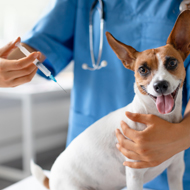Zoo’s sun bear in remission from cancer
Babu was only expected to live a matter of months after her diagnosis in April 2024.
A thirteen-year-old sun bear is now in remission, after receiving a terminal cancer diagnosis last year.
Babu, who lives at Edinburgh Zoo, had not been expected to live longer than a few months after she was diagnosed with lymphoma.
Keepers at the Royal Zoological Society of Scotland (RZSS) first became concerned for Babu’s wellbeing in April 2024, after noticing significant swelling in lymph nodes across her body. They also saw changes in her behaviour and eating habits.
After the zoo’s veterinary team examined her, she was diagnosed with lymphoma – a cancer which has very limited precedent in bears.
A second opinion from Isabel Miguel, a veterinary oncologist, confirmed Babu’s terminal diagnosis. With Babu only expected to live a matter of months, the veterinary team focused on ensuring she had a good quality of life.
Since bears often mask the symptoms of illness, it can be difficult for keepers to identify illnesses quickly.
This caused difficulty in 2023, when twenty-year-old sun bear Rotana was found to have a rapidly spreading cancer. Unfortunately, veterinary teams were unable to treat them in time and they was euthanised.
To inform Babu’s care, her veterinary team reviewed past records of similar cases. This included a number of studies into canine medicine, since lymphoma is common in dogs.
Edinburgh Zoo chose a treatment plan that would minimise potential side effects while providing pain relief for Babu, which they hoped would slow the cancer and ease her discomfort.
After six months of treatment, the veterinary team were surprised to see Babu’s condition improve. Diagnostic tests in October 2024 revealed a reduction in cancerous cells.
The zoo continued to monitor Babu’s condition, with further testing showing no detectable signs of disease. Dr Miguel was able to confirm that Babu was in remission.
Simon Girling, head of veterinary services at RZSS, said: “We’re delighted that Babu has responded so positively to the medication, especially as we were in uncharted territory.
“With confirmation of remission, we’ve been able to stop her pain medication, and are now gradually reducing her cancer treatment while closely monitoring her condition.”
Babu’s weight will continue to be tracked weekly and keepers will monitor her daily behaviour and appetite on an objective charting system. The veterinary team remain cautiously optimistic for her continued recovery.
As part of her treatment, Babu’s medication was hidden in honey – usually a rare treat in a sun bear’s diet. However, during her recovery, Babu was receiving honey treats twice each day.
Her keepers joke that the only downside to her remission is that she’ll receive fewer honey treats.
Dr Girling said: “This news is better than we ever hoped for, but it wasn’t what we expected and there’s always a possibility that the cancer could return. For now, what matters most is that Babu is happy, healthy and back to her old self.”
Image © RZSS



 RUMA CA&E has extended the deadline for its online survey into vaccine availability.
RUMA CA&E has extended the deadline for its online survey into vaccine availability.